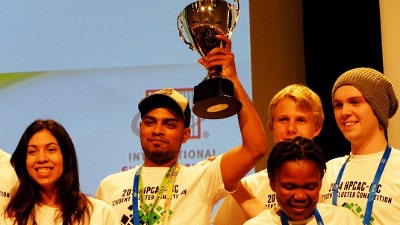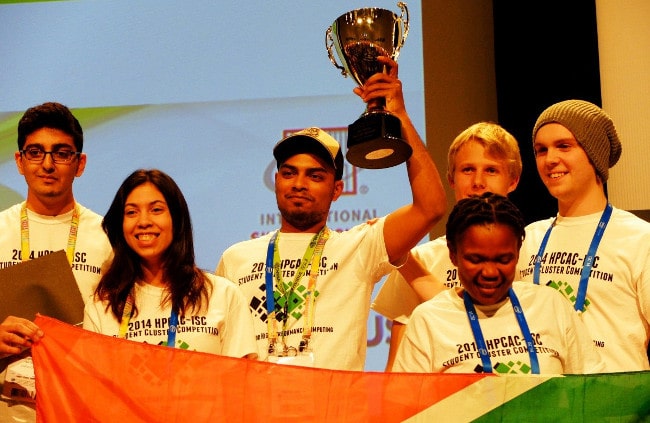
For the eighth time running, an NVIDIA GPU accelerator-based system powered the winning team in a major international student cluster competition.
This time, the team from Centre for High Performance Computing, from South Africa, won the overall competition, edging out 10 other teams from around the world for top honors. The competition was held this week at the International Supercomputing Conference (ISC ’14) in Leipzig, Germany.

It was the second ISC in a row that the South African team triumphed, after overcoming difficult circumstances to prevail at the 2013 conference.
And now, as before, NVIDIA Tesla K40 GPUs were one of their keys to victory.
GPUs Continue to Set Records
Besides powering the overall winning system, NVIDIA GPUs led the University of Edinburgh to achieve a record score on HPC industry standard Linpack performance benchmark.
The team’s Tesla K40 GPU-powered system reached 10.14 teraflops —the first time any student cluster team has hit this mark within the competition’s three-kilowatt power budget. The previous record of 9.27 teraflops was hit just a few months ago by China’s Sun Yat-sen University at the Asia student competition, ASC14, also with GPU accelerators.
University of Edinburgh team member Emmanouil Farsarakis not only learned a lot about supercomputing, but enjoyed the competitive environment.

“The competition was amazingly fun,” he said. “You learn to see a global perspective in running a competition like this. The system worked great and we could even remove fans as the liquid cooling gave great headroom.”
In addition to running industry benchmarks, systems were scored on how well they performed on a number of real-world applications including Quantum ESPRESSO, a materials science application, Open FOAM, a computational fluid dynamics software package, and the GADGET cosmology application.
String of Victories
The string of victories is more than just proof that GPU-accelerated systems can help the world’s fastest computers wring more work out of each unit of energy. It also shows that there’s a rising generation of computer scientists and researchers who see building machines with GPUs as a core part of their skillset.
For teams in the ISC’14 competition, GPUs are a not-so-secret weapon. Nine of the 11 teams relied on NVIDIA GPUs.